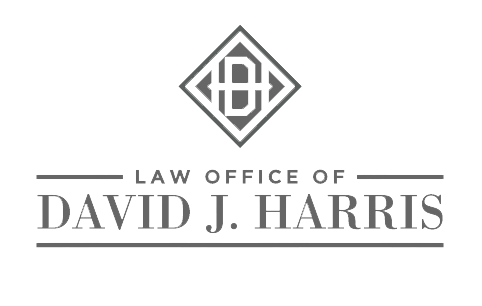You may think of being bankrupt as the condition of having no money left to pay for anything. That is only partly correct. Bankruptcy is a legal method that relieves individuals and organizations of burdensome debts that they could not possibly pay back.
When we speak about “relieving” debts, we do not necessarily mean canceling all debts as though they were never incurred. Some or all debts may be wiped out in certain kinds of bankruptcy, it is true, but other types of bankruptcy involve restructuring debt to create a more realistic schedule for the debtor to repay it.
The two most common types of bankruptcy for individuals are chapter 7 and chapter 13. For this reason, we will highlight these two types of cases and explain how the Law Office of David J. Harris can help you when you need a bankruptcy attorney in Wilkes-Barre, Pennsylvania.
Chapter 7 Bankruptcy
Filing under one particular bankruptcy chapter as opposed to another accomplishes a variety of objectives. To most, chapter 7 is the more preferable chapter under which to file because it is generally shorter in duration and less expensive than a chapter 13 filing. The attorney’s fee is usually smaller, and with a chapter 7 case, it is less likely that the debtor will have to pay funds to a trustee for distribution to creditors.
Nevertheless, a chapter 7 case, which is identified by the Bankruptcy Code as a liquidation-type bankruptcy case, is suitable for a debtor only if:
(a) the filing will not compel the debtor to lose property that he or she desires to keep;
(b) the debtor’s household income is less than the published state median income for the debtor’s household’s size or is greater than the published state median income for the debtor’s household’s size but, the debtor has significant secured debts (e.g., mortgage and car loans), priority unsecured debts (e.g., certain taxes and domestic support obligations), or unreimbursed medical expenses;
(c) the debtor’s actual current monthly income is not significantly more than the debtor’s projected monthly expenses;
(d) the debtor is current with the payment of his or her secured debt obligations; and
(e) the debtor has no debts that are non-dischargeable (e.g., employer withholding tax obligations, current income tax obligations, or domestic support arrearages).
Chapter 7 bankruptcies are liquidation-type bankruptcy cases, but a debtor usually will not lose any property by filing a petition under chapter 7 if the debtor does not have any non-exempt equity in his or her property.
For example, if a debtor owns a residence that is completely encumbered by a mortgage whose balance is equal to, or exceeds, the fair market value of the residence, then the debtor will not be in jeopardy of losing the property by filing a chapter 7 case, unless he or she fails to maintain his or her mortgage payments.
If the same debtor’s residence were valued at $100,000.00 and was encumbered by an $80,000.00 mortgage, the debtor will still not be in jeopardy of losing the property because the Bankruptcy Code affords a debtor an exemption of $25,150.00 of the equity in his or her home. Thus, if the trustee sought to liquidate the home, the net sales proceeds would be distributed to the mortgage holder first and then the next $25,150.00 to the debtor, leaving nothing for unsecured creditors. The trustee, therefore, will not seek to liquidate the property, as one of the trustee’s primary duties is to protect the interests of unsecured creditors, not secured creditors of the debtor (for the most part).
Chapter 13 Bankruptcy
Meanwhile, chapter 13 bankruptcy is directed more toward debtors paying back their creditors through structured repayment plans. How much debtors pay, and for how long, depends on the specifics of the situation.
A chapter 13 bankruptcy case is meant for those debtors with steady incomes. This is what allows them to pay back their debts at all. Repayment plans under chapter 13 bankruptcy last between three and five years. The court will usually mandate that the plan last five years if the debtor’s income is higher than the state median income. The plan will typically be for three years if the debtor’s income is lower than the state median.
In a chapter 13 bankruptcy case, you get to keep your house and other property and avoid foreclosure or repossession while making up for missed back payments. This is one of the most important advantages to chapter 13 bankruptcy for debtors.
As general overview, a debtor will chose to use Chapter 13 most often for the following reasons: (A) the debtor has gross household income that is greater than the state median income; (B) the debtor has excess income left over at the end of the month when factoring in expenses; (C) the debtor has a mortgage or tax arrearage and desires to keep his or her property; (D) the debtor has non-exempt equity in his or her assets that would cause those assets to be liquidated in a chapter 7 case; or (E) the debtor has non-dischargeable debt that he or she wants to address through a payment plan.
Consumer Chapter 11 Bankruptcy
While chapter 11 cases are also available to individual consumer debtors, a case under that chapter is not as commonly used as a chapter 13 case. Instead, chapter 11 is typically chosen when a consumer debtor has non-exempt equity in assets that the debtor desires to retain and large debts that need to be restructured.
Chapter 12 Bankruptcy
One sometimes overlooked type of consumer bankruptcy is a chapter 12 case. This kind of bankruptcy case helps family farmers or fishermen to address their debts if more than 50% of the debtor’s income is derived from a farming or fishing enterprise, as defined in a broad sense.
A chapter 12 case is similar to a chapter 13 case, but does not require the debtor to undergo the means test. Its debt limitations are also larger, and it allows the debtor to modify the amount paid back on a home mortgage in some instances. These factors distinguish a chapter 12 case from a chapter 13 case.
Experienced Bankruptcy Lawyer in Wilkes-Barre and Northeastern and Central Pennsylvania
David J. Harris is a single practitioner who has been working in bankruptcy law for more than 35 years. His significant experience is his greatest asset when helping clients to resolve their financial struggles through one of the various forms of bankruptcy.
Contact the law office of David J. Harris today to schedule a consultation and begin working toward your financial independence.

